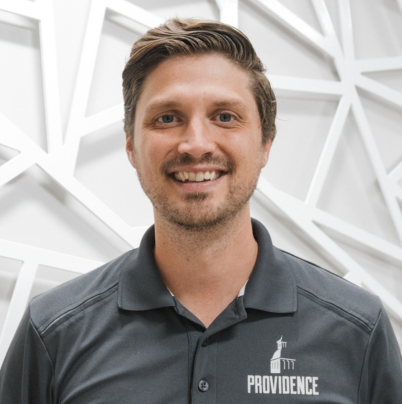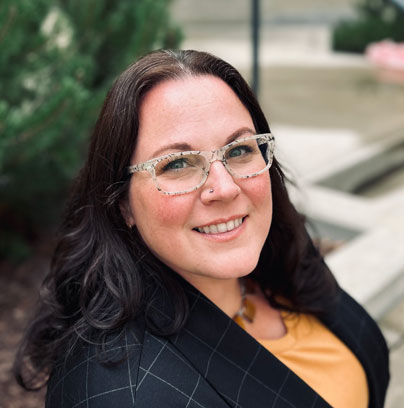
USA Student Information
By applying to Providence, you’ve demonstrated that you are ready for an education that integrates faith and learning. Providence is accredited by United States-based accrediting organizations, which means the degree you earn will have value in the world. Our location is just one-hour north of the Canada/USA border which will make it easy for you to return to the US for holidays and other breaks.
Apply for Fall 2025
To apply for Fall 2025 programs, select one of the following:
University College (Undergraduate Studies) – Bachelors Degrees
Theological Seminary – Masters in Counselling and Counselling Psychology
Apply for Winter 2026
We’re excited to introduce an improved application system for Winter 2026, making it easier than ever to apply to Prov! Whether you’re just starting out or ready to submit, our streamlined two-step process guides you all the way.
How it works:
- Create your profile – Save your login details so you can return to your portal anytime.
- Complete your application – Fill in your info, upload your documents, and you’re all set!
Apply Now!
We’re Here for You
This USA student-focused information should provide the answers to the questions you have. If we can be of further assistance, please email us at info@prov.ca or call us at 1-800-668-7768. We’ll be here to support you — now and in the future.
Find Your Program
Providence will help you discover your program so that you can use your unique talents and skills for serving others in your future career.
Grow Closer to God
You’ll deepen your faith through Christ-centred courses, Bible studies, prayer groups and interactions with Christian mentors and students.
Save Money
As an American, your cost to attend Providence is significantly lower than comparable schools in the US. Learn More
University College Entrance Requirements
Undergraduate Requirements
A completed Grade 12 high school certificate with at least five university preparatory credits (academic subjects). Currently, ACT/SAT scores are not required for entrance. However, you are welcome to include them with your application
University College Application Checklist
- Complete and submit your online application for undergrad programs or graduate programs.
- Submit secondary school transcripts either by mail or by email (i.e. official transcripts must be received directly from your high school).
- If application is accepted, pay deposit of $300 CDN to confirm admission and to access course registration. This deposit is credited towards the first semester’s tuition payment and is refundable up to July 1st.
Seminary Entrance Requirements
All students entering studies at Providence Theological Seminary are admitted only to the Seminary and not to a degree program. Thus, all students admitted are on probation for either one semester (for those in certificate and two-year M.A. programs) or two semesters (for those in the three-year programs). If a student is judged by the faculty (or by the Academic Committee acting on its behalf) to have character, emotional, or academic aspects which would hinder effective ministry or the successful completion of the program they desire to enter, they may be denied entry to that program.
Academic Prerequisites
In addition to a completed application and references, you’re required to have an undergraduate degree from an accredited institution. You must have attained a minimum GPA of 2.5 (on a 4-point scale) in the last 2 full years of study (60 credit hours). Some programs may specify a higher GPA requirement or additional prerequisites, listed in the degree program descriptions. If you do not have a recognized degree you may qualify for admission as a Mature (over age 30) student or Non-Accredited Degree student.
Note: Particular prerequisites may be required depending on the program you choose. Please see the degree program descriptions in the Academic Catalogue.
Probationary Acceptance Students
Probationary acceptance may be offered to students who meet all admissions criteria except the entrance GPA requirement. Students with an entrance GPA between 2.0 and 2.5 may be considered but admission is not guaranteed. Probationary conditions will apply and will be assigned on a case-by-case basis by the Admissions Committee. Conditions may include, but are not limited to:
- Enrolling in a certificate program in the first semester
- Mandatory participation in tutoring services
- Limited course load
- Mandatory enrollment in assigned courses
- Regular meetings with a faculty advisor
- Completion of additional undergraduate credits prior to or concurrent with Seminary enrollment
Reassessment for Regular Student status and formal acceptance to a program will occur at least one semester after probationary conditions have been met.
Regular Students
All students who have met the entrance requirements are classified as regular students (probationary status not-withstanding). Those taking nine or more credit hours per semester are considered full-time; those taking fewer are considered part-time.
Mature Students & Non-Accredited Degree Students
If you haven’t obtained a Bachelor’s Degree you may be able to apply as a mature student. You must be at least 30 years old and be able to demonstrate academic aptitude through one of the following:
- Submit an official GRE (Graduate Record Examination) score. Minimum scores of 153 in the verbal section and 4.5 in the analytical section are required. Providence’s institutional code for the GRE is 6585.
- If you have a cumulative grade point average of 3.0 (on a 4-point scale) from another graduate institution you may be considered for admission if the other graduate institution is considered equivalent to Providence.
- Submit an RPL (Recognition of Prior Learning) portfolio for assessment. Fees apply.
If you have a degree from a non-accredited institution you can apply as a Non-Accredited Degree student. There is no age restriction.
Note: The Association of Theological Schools (ATS), our accrediting body, limits the number of students we can admit as Mature or Non-Accredited degree students, except in cases where students’ RPL portfolio or Non-Accredited Degree is determined to be the educational equivalent of an accredited Bachelor’s Degree.
You will be assessed according to program vacancies, and the merits of you application. If you’re entering the M.A. (Theological Studies) or the M.A. (Christian Studies) programs, you’re not eligible for Mature or Non-Accredited Degree status.
Special Students
Students who wish to take courses at Providence but are not ready to complete a full application at the time may submit an Special Student Application (see under Application Forms below) for special student status. Students can take a maximum of 15 credit hours of study after which, a full application to Providence Theological Seminary is required to take further classes. Students may take any courses for which they meet the prerequisites (students wishing to take Seminary courses must provide an undergraduate degree prior to registration).
Continuing Education Units
Some professional organizations require continuing education units to maintain credentials in the organization. Seminary courses can be taken for continuing education units. Students may request a transcript for the course that can be used as proof to the credentialing organization. Whether the course can be audited or must be taken for credit is up to the credentialing organization. Credit or audit fees apply, as well as a fee for an official transcript.
Auditors
Students auditing courses are not required to complete assignments or take examinations but may attend classes for their personal enrichment. Those who audit courses receive no credit, but must register and attend classes regularly if they wish the audited course to appear on their transcript. Changes from audit to credit or from credit to audit must be made during the first two weeks of the semester. Some courses may be closed to auditors. All audits are subject to the instructor’s approval. Please contact the Registrar’s Office for more information.
IMPORTANT NOTE: If there are discrepancies between the credit transfer information listed here and in the Academic Calendar, the Academic Calendar is definitive.
Seminary Application Checklist
For ALL Applications
Complete and submit an online application, including: an autobiographical essay (12-pt, single-spaced, min 500-words) and Applicant Agreement / Covenant of Community Life affirmation. Provide email addresses and phone numbers for three referees: (a.) Church Reference – your pastor or church elder, (b.) Professional Reference – your supervisor or employer, and (c.) Personal Reference – a close friend.
Arrange submission of official post-secondary transcripts sent directly from your college / university.
Request housing information by contacting the Student Services Coordinator
For Applied Counselling / Counselling / Counselling Psychology / M.Div. Pastoral Counselling track / M.A. Educational Studies Student Development track
All the application requirements mentioned in a) above including
Non-refundable application fee $135 ($50 application fee and $75 EQ-i assessment fee)
Vulnerable Sector/Child Abuse Registry and Criminal Record Check (or equivalents).Obtain from your local law enforcement and/or provincial family services agency, email copy of results, keep originals.
Sign and return the EQ-i Consent Form
Complete the EQ-I Test, which will be sent to you via email after you have completed the application
For Doctor of Ministry
All the application requirements mentioned in a) above including:
Self-study (Doctor of Ministry applicants only)
Pay the non-refundable deposit of $800 if a Doctor of Ministry applicant
Application Policy
In admitting students, Providence does not discriminate on the basis of race, colour, sex, nationality or ethnic origin. Personal information in your application
packet is used solely to facilitate your application process.
Arrival & Orientation
If you’re flying in, you will be picked up at the Winnipeg’s James Armstrong Richardson International Airport by our International Student Services Coordinator or by a student International Assistant. They will meet you at the airport’s baggage claim area. Please email the International Student Services Coordinator your flight information as soon as you have booked your flight.
In some cases because of scheduling conflicts, another Providence representative may pick you up. Please note that there is no bus or train service to the Providence campus.
- International Student Arrival Dates: There are set days for international students to arrive. If you arrive on the allotted International Student Arrival Dates, you will not be charged for pick up.
- International Student Orientation Days: Check the Providence Important Dates for orientation dates. All international students, including USA students, are required to attend. During orientation you will learn about Canada, As an international student, you will be introduced to Canada, the Province of Manitoba and Providence. IMPORTANT NOTE: If you miss orientation you will be charged $325.00 to cover the costs for personal orientation.
If you stay in residence during orientation the cost is $35 per day for room and meals until the residences officially open and your meal plan starts.
What to Expect at the Border
Coming into Canada from the USA begins with a stop at a Canada Border Services Agency (CBSA) port of entry. Planning ahead will ensure you have a worry-free border crossing. When entering Canada, you must show Western Hemisphere Travel Initiative (WHTI)-compliant documents, such as a passport book or passport card. If you are a permanent resident of the US you must show your Permanent Resident Card (green card).
Immigration Documents
Study Permits
You must come with a study permit if you plan to study at Providence. You can apply for a study permit online or at any Canadian Visa Office in your country. Apply as soon as possible because processing times for Study Permits can range from six to eight weeks depending on the location of the Canada Visa Office. A study permit is not an entry document.
To obtain a study permit, you will need to have the following documents:
- A valid passport (recommended) or driver’s license and birth certificate and marriage (if applicable) certificates.
- Your “letter of acceptance” from Providence along with the designated Learning Institute number.
- Proof that you have enough money to support yourself (and any dependents) for your first year in Canada (i.e., bank statements, letters from people supporting you financially, etc.).
- A letter from your sponsoring organization, if you are being sponsored.
A fee will be required to obtain your study permit. If your spouse or family is accompanying you, they must have proper identification as well (passports or driver’s license and birth certificates). Your children (under 18 years old) will not need study permits to attend school in Canada as long as a parent holds a valid study permit. A study permit allows you to work in Canada for 20 hours during the semester or full-time during the four-month summer break.
Available Work Permits:
- Spouse Work Permit: Allows the spouse of a full-time Providence student to work and support the family.
- Work Permits: Available to help complete degree programs that require work experience, an internship, or a practicum. Providence will inform you if you need a Work Permit for entry into your program.
With a Study Permit, you may work in Canada until your permit expires. However, if you plan to work with children or in healthcare settings, you will be required to complete an immigration medical examination. For more information, please contact our International Student Services Coordinator.
PGWP – University College Programs Only
The Post-Graduation Work Permit (PGWP) allows eligible international students to stay and work in Canada for up to three years after completing their program. For more detailed information, visit the Government of Canada’s website or connect with our International Student Services Coordinator.
Please note: The PGWP is applicable only to University College programs; Theological Seminary programs are not eligible.
Driving in Canada
Health Insurance
It is mandatory for US students to purchase Guard.me International Health Insurance, even if they already have travel health insurance from their own country. The cost of international health insurance is now included in the tuition fees, and students are no longer required to purchase insurance directly through Guard.me.
mobileDOCTOR by Guard.Me
Students can have online medical check-ups through Guard.Me’s mobileDOCTOR application, accessible via laptop, phone, or tablet. This is a 24/7 free service. To avail this service, go to MobileDOCTOR – Providence University College&Theological Seminary | guard.me and follow the instructions on how to register and download the app.
To learn more, contact our International Student Services Coordinator.







